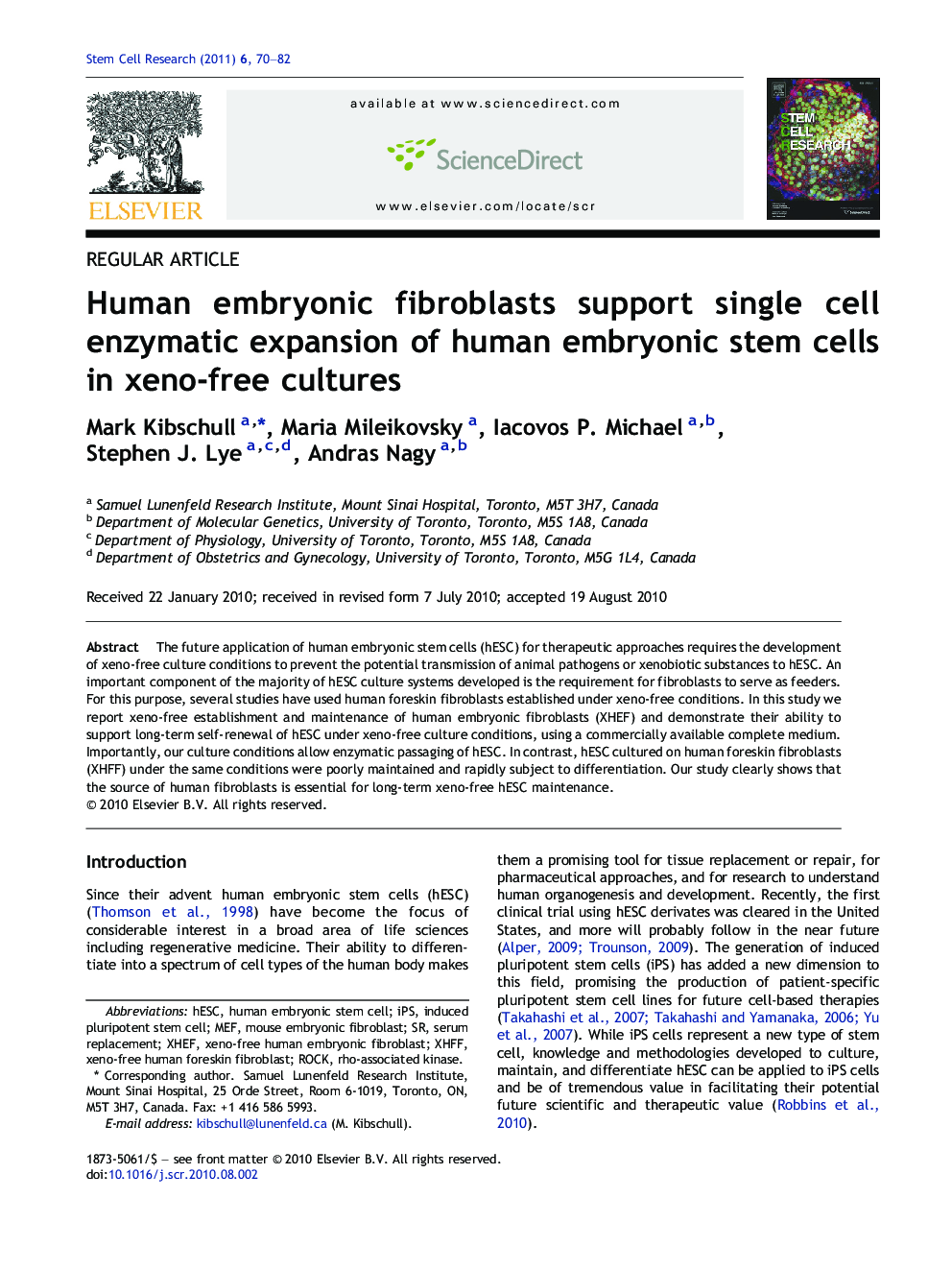| Article ID | Journal | Published Year | Pages | File Type |
|---|---|---|---|---|
| 10891350 | Stem Cell Research | 2011 | 13 Pages |
Abstract
The future application of human embryonic stem cells (hESC) for therapeutic approaches requires the development of xeno-free culture conditions to prevent the potential transmission of animal pathogens or xenobiotic substances to hESC. An important component of the majority of hESC culture systems developed is the requirement for fibroblasts to serve as feeders. For this purpose, several studies have used human foreskin fibroblasts established under xeno-free conditions. In this study we report xeno-free establishment and maintenance of human embryonic fibroblasts (XHEF) and demonstrate their ability to support long-term self-renewal of hESC under xeno-free culture conditions, using a commercially available complete medium. Importantly, our culture conditions allow enzymatic passaging of hESC. In contrast, hESC cultured on human foreskin fibroblasts (XHFF) under the same conditions were poorly maintained and rapidly subject to differentiation. Our study clearly shows that the source of human fibroblasts is essential for long-term xeno-free hESC maintenance.
Keywords
Related Topics
Life Sciences
Biochemistry, Genetics and Molecular Biology
Biotechnology
Authors
Mark Kibschull, Maria Mileikovsky, Iacovos P. Michael, Stephen J. Lye, Andras Nagy,
